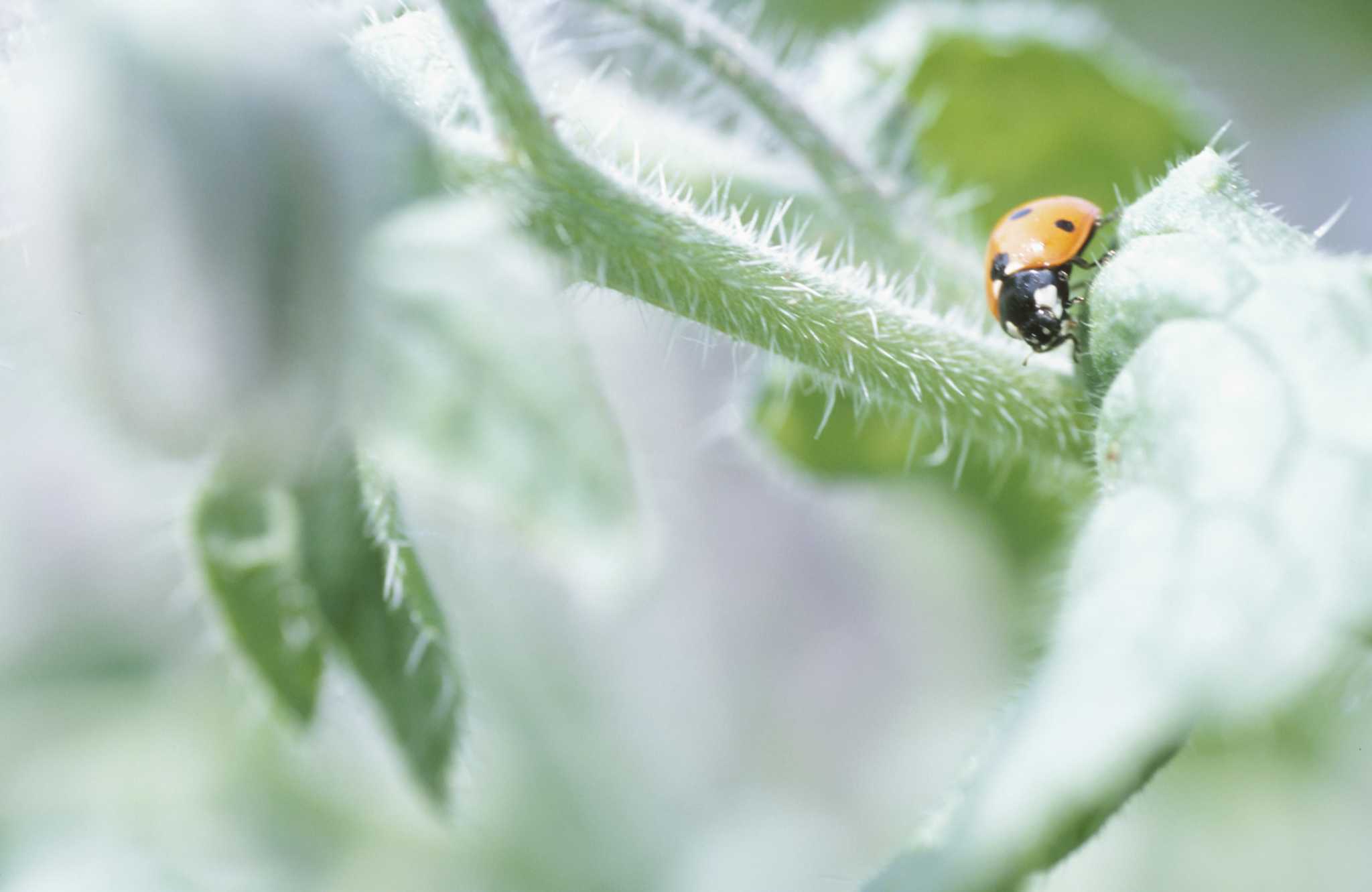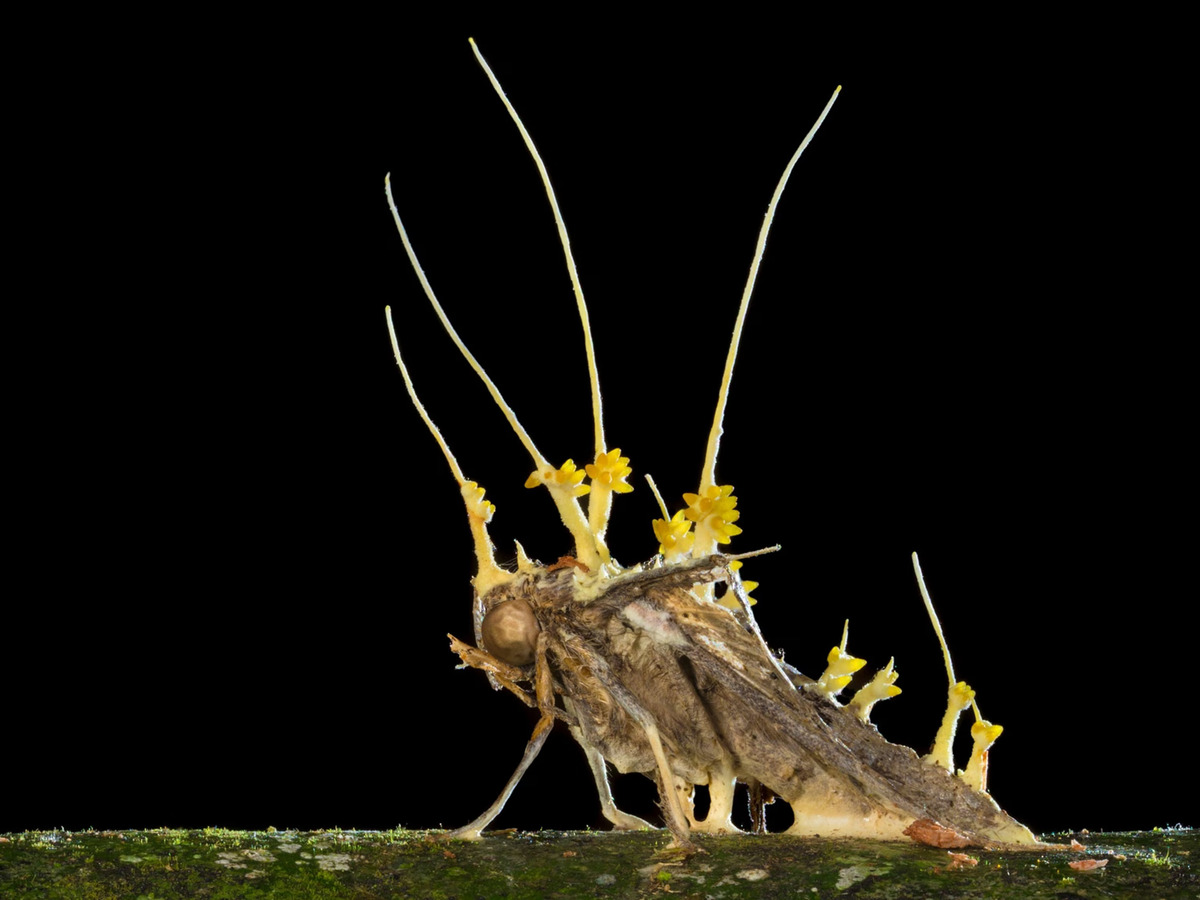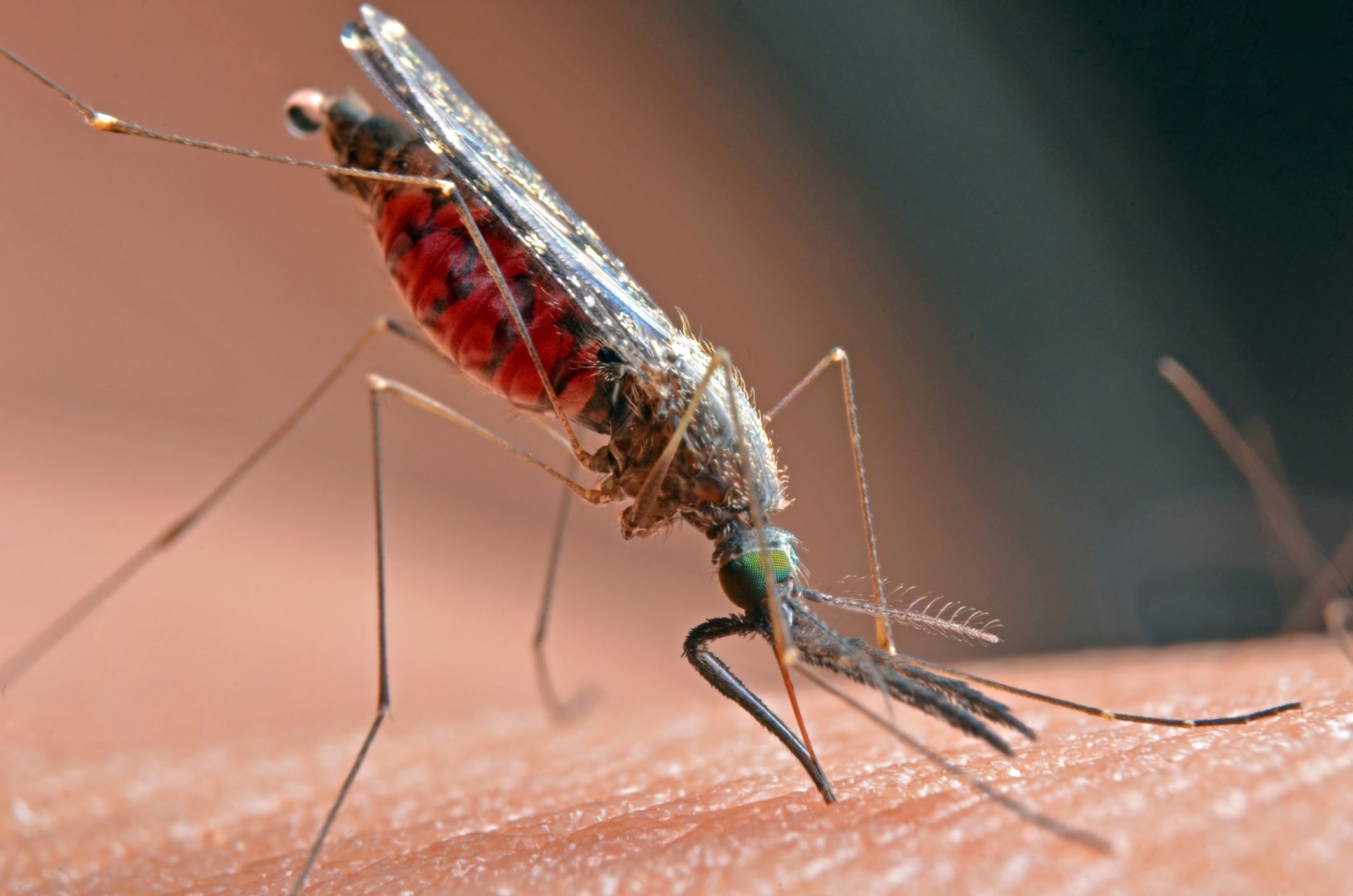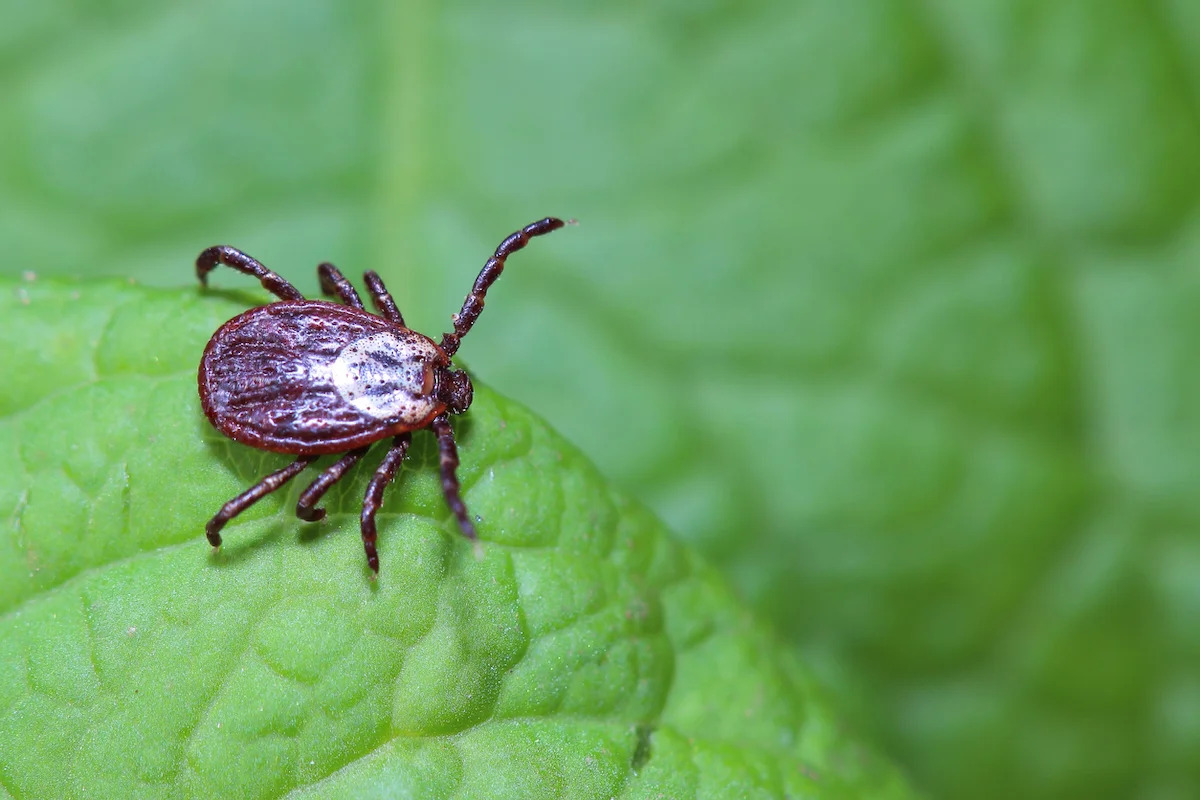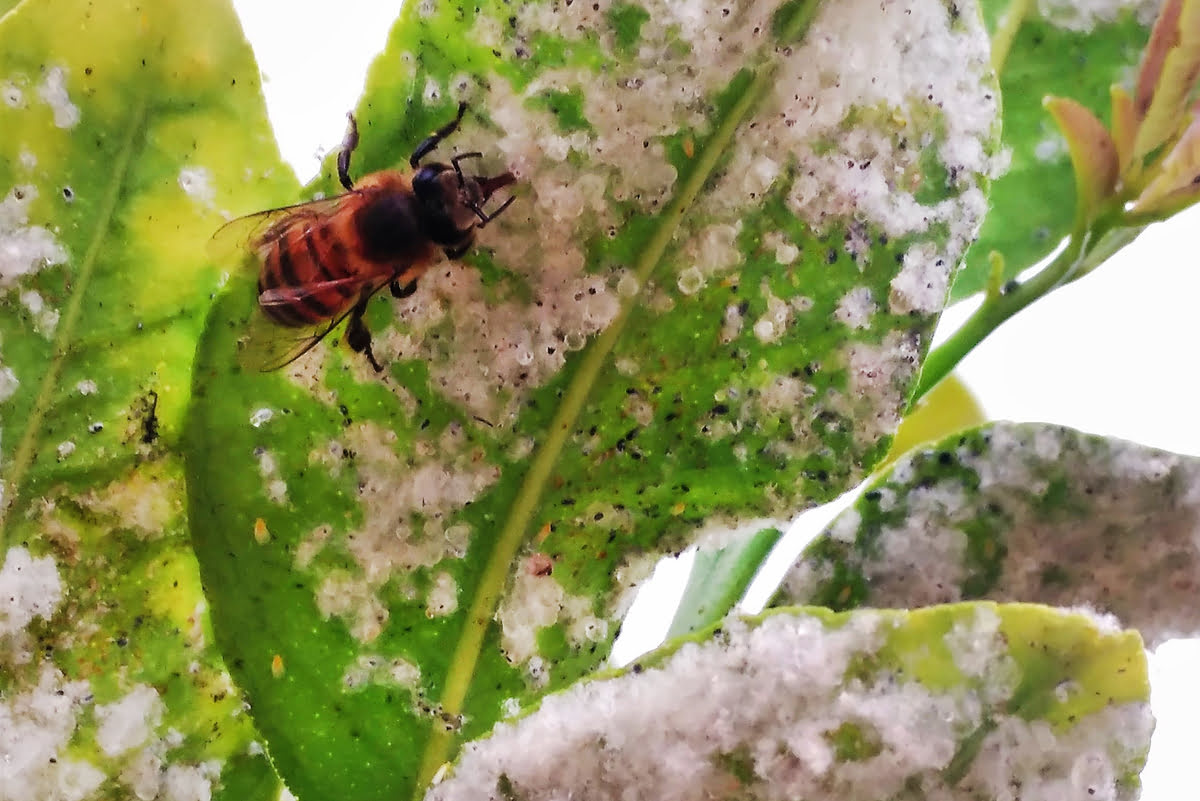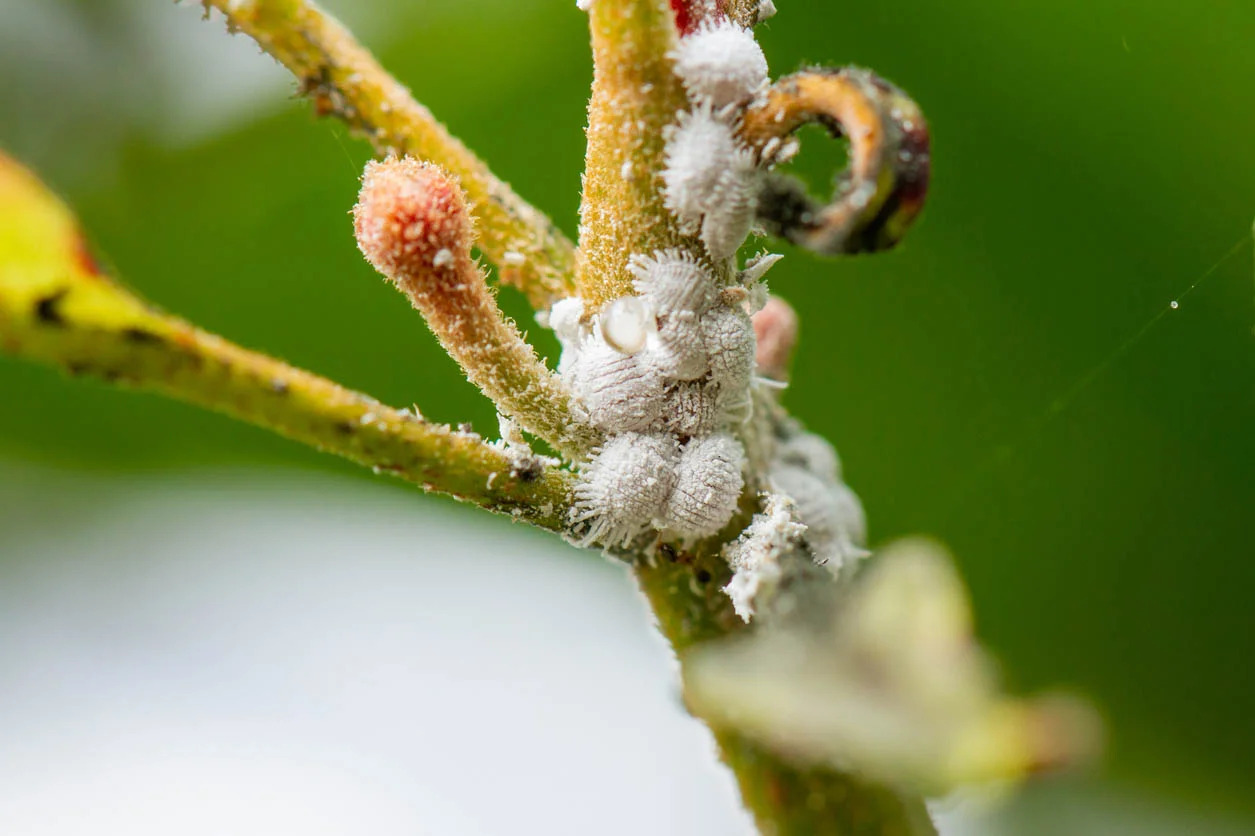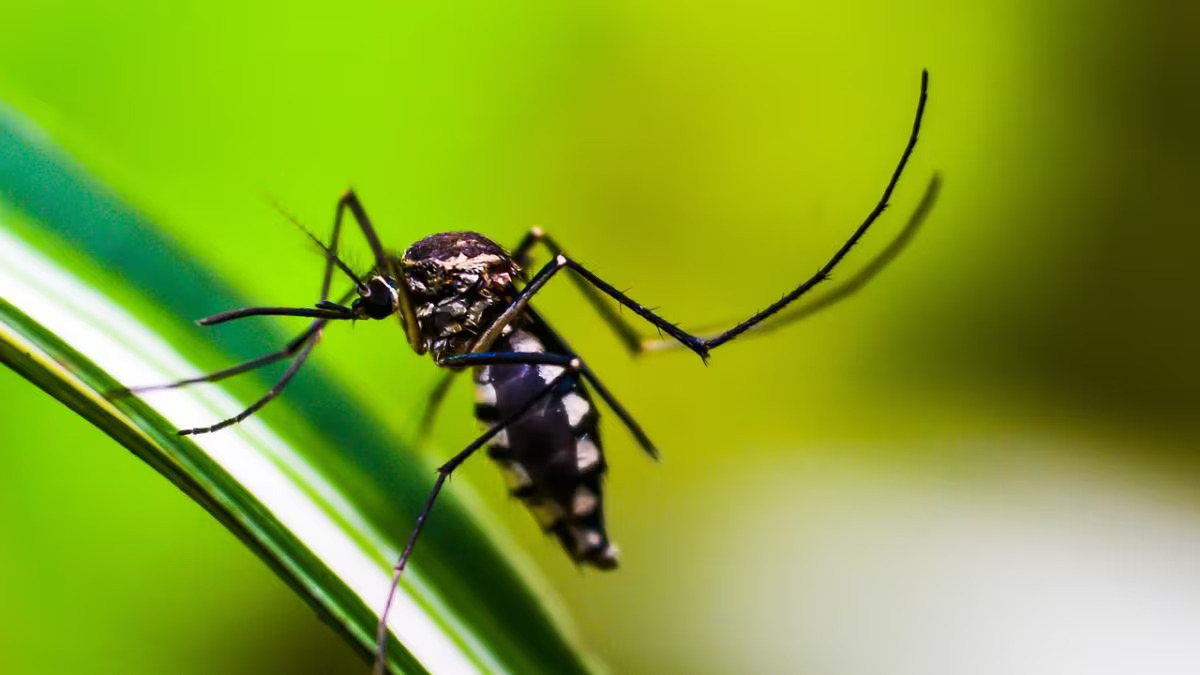Home>Gardening News and Trends>Latest News>What Insects Does Citronella Repel
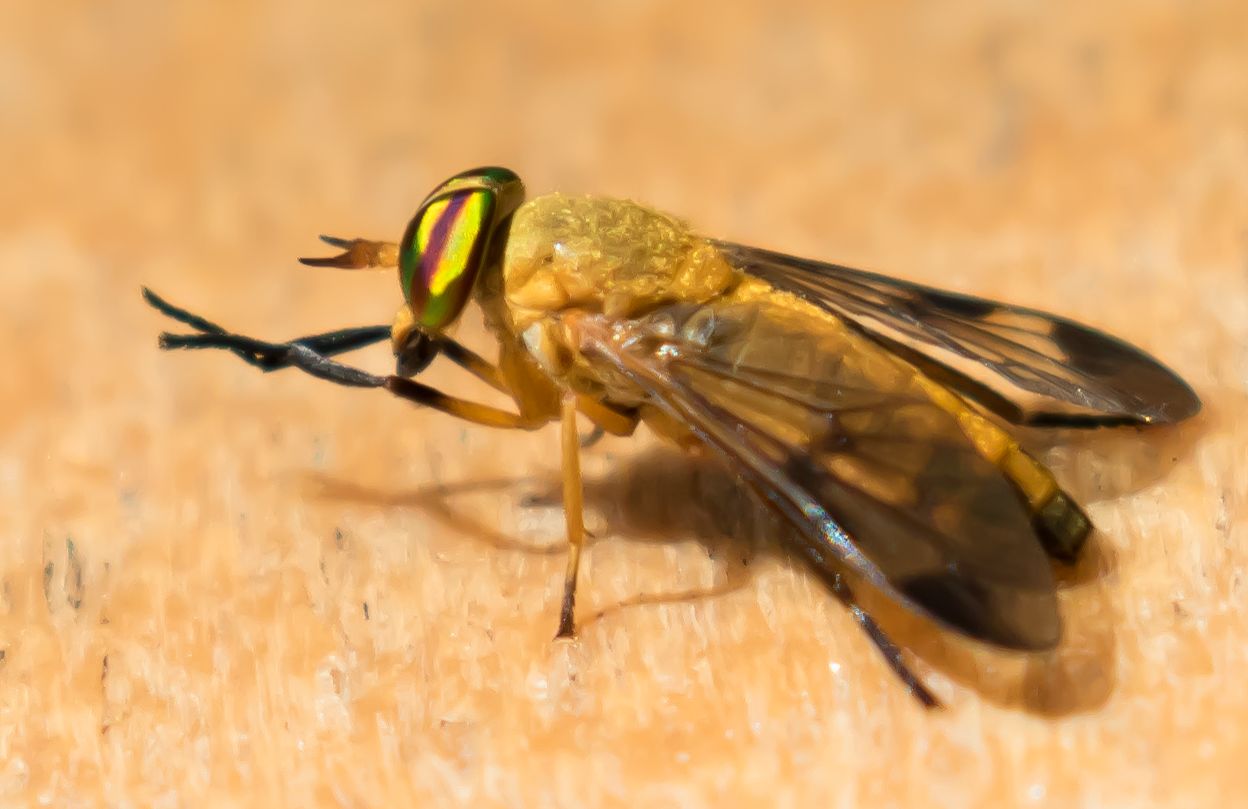

Latest News
What Insects Does Citronella Repel
Modified: January 22, 2024
Discover the latest news on what insects citronella repels and how it can effectively keep them away. Learn about the benefits of using citronella as a natural insect repellent.
(Many of the links in this article redirect to a specific reviewed product. Your purchase of these products through affiliate links helps to generate commission for Chicagolandgardening.com, at no extra cost. Learn more)
Table of Contents
Introduction
When it comes to keeping pesky insects at bay, citronella has long been known as a natural and effective repellent. Found in products such as candles, oils, and sprays, this fragrant grass has been used for centuries to ward off insects like mosquitoes, flies, and ants. But what exactly is citronella and how does it work?
Citronella, scientifically known as Cymbopogon, is a genus of grass that belongs to the Poaceae family. Native to tropical regions of Asia, it is now cultivated in many parts of the world for its insect-repelling properties. The oil extracted from citronella grass consists of various compounds, including citronellal, geraniol, and citronellol, which are responsible for its distinctive scent and repelling capabilities.
Unlike many chemical-based insect repellents, citronella is a natural alternative that does not contain harmful substances like DEET. Instead, it works by masking the scents and disrupting the sensory receptors of insects, making them unable to locate their human prey.
One of the advantages of citronella is its versatility. It can be used in various forms, such as candles, lotions, and sprays, making it accessible and easy to incorporate into your daily routine. Additionally, it is commonly found in outdoor products like torches and lanterns, making it a popular choice for backyard gatherings and camping trips.
In this article, we will explore the types of insects that citronella repels and how it effectively keeps them at bay. So, if you’re tired of dealing with itchy bug bites and want a natural solution, read on to discover the power of citronella as an insect repellent.
What is Citronella?
Citronella is a type of grass from the Cymbopogon genus, known for its strong, citrus-like scent. This fragrant grass is native to tropical regions of Asia, particularly Sri Lanka and Java, and is now cultivated in many parts of the world due to its valuable properties.
The essential oil extracted from citronella grass contains several compounds, including citronellal, geraniol, and citronellol. These compounds contribute to the distinct smell of citronella and its ability to repel insects. It is important to note that citronella should not be confused with lemongrass, another popular grass variety with its own unique properties.
Citronella has been used for centuries as a natural insect repellent. Its history dates back to ancient China, where it was first used to repel mosquitoes and other insects. Later, it was introduced to Europe in the 19th century and gained popularity as an effective alternative to chemical-based repellents.
Today, citronella is widely used in various forms, including candles, lotions, sprays, and even infused into fabrics. Its versatility allows people to easily incorporate it into their daily routines and outdoor activities.
It is important to note that while citronella is generally considered safe for humans, certain precautions should be taken. Direct contact with the essential oil may cause skin irritation or allergic reactions in some individuals. Therefore, it is recommended to dilute citronella oil or use commercially available products that have been formulated for safe use.
Now that we have a better understanding of what citronella is and its historical significance as a natural insect repellent, let’s delve into how exactly it repels insects and provides protection from those annoying bites.
How Does Citronella Repel Insects?
Citronella has gained its reputation as an insect repellent due to its ability to confuse and deter insects. The active compounds found in citronella, such as citronellal and geraniol, interfere with the insects’ senses and disrupt their ability to locate their prey.
When citronella is applied or released into the environment, it masks the scents that attract insects, making it difficult for them to find their target. Mosquitoes, for example, are attracted to the carbon dioxide and lactic acid emitted by humans, which helps them locate their next blood meal. However, the strong citrus scent of citronella can overpower these chemical cues, confusing the mosquitoes and keeping them at bay.
In addition to scent masking, citronella also disrupts the sensory receptors of insects. The compounds in citronella can interfere with the receptors that insects rely on to sense heat, humidity, and the presence of potential hosts. This makes it harder for them to detect and track human targets.
Furthermore, citronella has been found to have a repellent effect on insects by affecting their feeding behavior. It can inhibit the enzymes necessary for mosquitoes and other insects to bite and feed on human blood. By reducing their ability to bite, citronella acts as an effective barrier, preventing insects from getting close enough to cause nuisance or transmit diseases.
It is worth noting that while citronella is effective in repelling certain insects, it may not be 100% foolproof for every individual or every situation. Factors such as the concentration of citronella, surrounding environmental conditions, and individual attractiveness to insects can affect its effectiveness. However, many people find that using citronella-based products, combined with other preventive measures like wearing long sleeves and eliminating stagnant water sources, provide substantial protection against biting insects.
Now that we have explored how citronella repels insects, let’s dive into the specific types of insects that are known to be deterred by the power of citronella.
Types of Insects Repelled by Citronella
Citronella is known for its effectiveness in repelling a variety of insects. While its primary purpose is to ward off mosquitoes, it also works against other common pests, making it a versatile solution for insect control.
Here are some of the key types of insects that are repelled by citronella:
- Mosquitoes: Mosquitoes are perhaps the most well-known and bothersome insects, especially during the warmer months. Citronella candles, sprays, and lotions create a protective barrier that keeps these bloodsuckers at bay, reducing the risk of itchy bites and potential diseases they may carry.
- Flies: Flies can be a nuisance both indoors and outdoors, causing annoyance and potential contamination of food. Citronella’s strong scent can deter flies, discouraging them from buzzing around and landing on people or food.
- Ants: Ants are known for their persistence in infiltrating homes and outdoor spaces in search of food. Citronella’s powerful scent can disrupt their pheromone trails, making it harder for them to find paths and invade your living areas.
- Fleas and Ticks: Citronella can also be effective in repelling fleas and ticks. These parasitic insects can cause discomfort and transmit diseases to pets and humans. Using citronella-based products on your pets or in outdoor spaces can help create a barrier of protection.
- Gnats: Gnats, often referred to as “no-see-ums,” are tiny, flying insects that can deliver irritating bites. Citronella’s scent can repel gnats, reducing the chances of getting bitten and experiencing discomfort.
In addition to these main types of insects, citronella has also shown effectiveness in repelling other common pests, such as chiggers, midges, and even certain species of cockroaches. Its broad spectrum of repellent properties makes it a popular choice for those seeking a natural pest control solution.
However, it’s important to note that while citronella can deter many insects, its effectiveness may vary depending on factors such as concentration, application method, and environmental conditions. It is advisable to follow product instructions and take other preventive measures, such as wearing appropriate clothing and eliminating breeding sites, to enhance the overall effectiveness of citronella-based products.
Now that we’ve explored the types of insects repelled by citronella, we can see its broad range of applications for insect control. Understanding these benefits can help you make informed decisions when it comes to incorporating citronella into your pest management strategies.
Mosquitoes
Mosquitoes are well-known for their annoying bites and their ability to transmit diseases such as malaria, dengue fever, and Zika virus. Fortunately, citronella is an effective natural repellent that can help keep these blood-thirsty insects at bay.
The strong scent of citronella masks the carbon dioxide and lactic acid that humans naturally emit, which are major attractants for mosquitoes. By disrupting their ability to detect these odors, citronella creates a barrier that confuses and repels mosquitoes, preventing them from finding their human prey.
Citronella-based products are available in various forms, making it easy to incorporate into your daily routine. Citronella candles can be used outdoors, creating a pleasant ambiance while providing protection from mosquitoes. Lotions and sprays containing citronella can be applied directly to the skin, forming a protective layer that deters mosquitoes from landing and biting.
It’s important to note that while citronella is effective against many species of mosquitoes, it may not repel all types equally. Some species, such as the Aedes mosquitoes, which are known to transmit diseases like dengue and Zika, may be less affected by citronella. In these cases, additional preventive measures, such as wearing long sleeves and using mosquito nets, should also be employed to minimize the risk of mosquito bites.
When using citronella as a mosquito repellent, it is crucial to follow the instructions provided by the product manufacturer. Remember to apply or use the product in a well-ventilated area and avoid direct contact with the eyes or open wounds.
By incorporating citronella into your mosquito protection strategy, you can enjoy outdoor activities without the constant annoyance of mosquito bites. Whether you’re lounging in your backyard or exploring the great outdoors, citronella can help create a more pleasant and mosquito-free environment.
Flies
Flies are not only a nuisance, but they can also carry pathogens and contaminate food. Fortunately, citronella can help deter these pesky insects and keep them away from both indoor and outdoor areas.
The strong citrus scent of citronella is highly effective in repelling flies. Flies, like many other insects, rely heavily on their sense of smell to locate food sources. The powerful aroma of citronella masks the odors that attract flies, making it difficult for them to find their way to human or animal hosts.
Using citronella candles or diffusers can create a protective zone, keeping flies at a distance. The airborne scent of citronella acts as a barrier, discouraging flies from landing on people or surfaces. Additionally, citronella-based sprays can be applied to areas where flies tend to gather, such as picnic tables or outdoor dining areas, to further repel these pests.
It is important to note that while citronella is effective against common flies, it may be less effective against certain fly species, such as fruit flies or blowflies. These flies may not be as deterred by the scent of citronella and may require other control measures to reduce their presence.
When using citronella as a fly repellent, it’s essential to follow the instructions provided by the product manufacturer. Different applications and concentrations may be required depending on the specific fly problem you’re dealing with.
By incorporating citronella into your fly control methods, you can enjoy a fly-free environment both indoors and outdoors. Whether you’re having a picnic in the park or simply relaxing on your patio, citronella can help create a more peaceful and fly-free space.
Ants
Ants are notorious for infiltrating homes and outdoor spaces in search of food. Fortunately, citronella proves to be an effective natural repellent against these persistent pests.
The strong scent of citronella disrupts ants’ pheromone trails, which they use to communicate with each other and find food sources. By masking these trails, citronella confuses and deters ants from following their usual foraging paths, making it harder for them to invade your living areas.
Citronella can be used both indoors and outdoors to repel ants. For indoor use, citronella-based sprays can be applied along ants’ entry points, such as windowsills, door frames, and cracks in walls. Additionally, using citronella-infused cleaning products can help create an environment that ants find less attractive.
When dealing with outdoor ant problems, citronella candles or torches can be placed strategically around the perimeter of your outdoor space. This creates a protective barrier, deterring ants from venturing into your yard or patio.
It’s important to note that while citronella is effective against common household ants, some ant species may be less affected by its scent. For instance, certain species of carpenter ants or pharaoh ants may not be as deterred by citronella alone. In such cases, it may be necessary to combine citronella-based products with other ant control methods, such as removing potential food sources and sealing entry points.
When using citronella as an ant repellent, make sure to follow the instructions provided by the product manufacturer. The concentration and application method may vary depending on the severity of the ant infestation and the specific ant species you’re dealing with.
By incorporating citronella into your ant control strategies, you can discourage ants from invading your living spaces and enjoy a more ant-free environment. Whether you’re dealing with pesky ants in your kitchen or trying to keep them out of your picnic area, citronella can help create a cleaner and more ant-free space.
Fleas and Ticks
Fleas and ticks are pesky parasites that can cause discomfort and pose health risks for both humans and pets. Fortunately, citronella can also be effective in repelling these blood-sucking pests.
Citronella disrupts the sensory receptors of fleas and ticks, making it harder for them to locate and latch onto their hosts. The strong scent of citronella acts as a deterrent, reducing the chances of these pests biting and feeding on humans or pets.
Using citronella-based products on your pets can provide an extra layer of protection against fleas and ticks. Citronella-infused shampoos, sprays, and collars can help repel these pests and make your furry friends less attractive to them.
When it comes to outdoor areas, citronella candles or torches can be effective in creating a protective zone that deters fleas and ticks. Placing them strategically around your yard or outdoor seating areas can help reduce the presence of these pests.
It’s important to note that while citronella can help repel fleas and ticks, it should not be relied upon as the sole method of prevention. Other preventive measures, such as regular grooming and tick checks, using flea and tick control products, and eliminating breeding grounds, should also be employed.
When using citronella products on your pets or in outdoor areas, always follow the instructions provided by the manufacturer. The concentration and application method may vary depending on the specific product and the extent of the flea and tick problem you’re dealing with.
By incorporating citronella into your flea and tick prevention routine, you can help reduce the chances of infestations and minimize the discomfort and health risks associated with these pests. Whether you’re enjoying time outdoors or ensuring the well-being of your beloved pets, citronella can be a valuable tool in your fight against fleas and ticks.
Gnats
Gnats, also known as “no-see-ums,” are tiny flying insects that can deliver irritating bites and cause discomfort. Fortunately, citronella is an effective repellent that can help keep these bothersome pests at bay.
The strong scent of citronella is highly effective in repelling gnats. The powerful aroma masks the chemical cues that attract gnats to humans or animals, making it harder for them to locate their hosts. By creating a barrier with citronella, you can reduce the chances of getting bitten and experiencing the itchiness and irritation that gnats can cause.
Using citronella-based sprays or lotions on exposed areas of the body can provide an added layer of protection against gnats. The application of these products acts as a deterrent, making you less appealing to these pesky insects.
When enjoying outdoor activities in areas where gnats are prevalent, such as parks or hiking trails, lighting citronella candles or using citronella torches can help create a zone of protection. These products emit the scent of citronella into the air, making it less desirable for gnats to approach and bite.
It’s important to note that while citronella can be effective in repelling gnats, it may not provide complete protection in every situation. Other preventive measures, such as wearing long sleeves, using mosquito nets, and avoiding areas with high gnat populations, should also be taken into consideration.
When using citronella products, be sure to follow the instructions provided by the manufacturer. Applying the right concentration and reapplying as needed can enhance the overall effectiveness of citronella in repelling gnats.
By incorporating citronella into your outdoor routines and protecting exposed areas with citronella-based products, you can minimize the annoyance and discomfort caused by gnats. Whether you’re enjoying a picnic, gardening, or simply lounging on your patio, citronella can help create a more gnat-free environment.
Other Insects Repelled by Citronella
While citronella is most commonly known for repelling mosquitoes, flies, ants, fleas, ticks, and gnats, it also has repellent effects on several other types of insects. Here are some additional insects that citronella can help keep at bay:
- Midges: Midges, also known as biting midges or sandflies, are tiny flying insects that can deliver irritating bites. Citronella’s strong scent can repel midges and reduce the chances of getting bitten and experiencing discomfort.
- Chiggers: Chiggers are small arachnids that can cause itchy bites. Applying citronella-based products on exposed skin can act as a deterrent and help minimize the risk of encountering chiggers in outdoor areas.
- Certain Species of Cockroaches: While citronella is not a comprehensive solution for cockroach control, it can help deter certain species of cockroaches, making them less likely to invade living spaces. However, it’s important to implement proper sanitation and control measures for effective cockroach management.
- Stinging Insects: While citronella may not directly repel stinging insects like bees and wasps, its strong scent can deter them from approaching areas where it is present. However, it is important to note that citronella should not be relied upon as the sole protection against these insects, as they can still sting if provoked.
It’s important to remember that while citronella can be effective in repelling these insects, its potency and duration of effectiveness may vary. Factors such as the concentration of citronella, surrounding environmental conditions, and individual attractiveness to insects can affect its repellent properties.
By incorporating citronella into your insect control strategies, you can minimize encounters with a wide range of pests and create a more enjoyable outdoor and indoor environment.
Conclusion
Citronella is a versatile and effective natural insect repellent that has been used for centuries. Whether you’re dealing with mosquitoes, flies, ants, fleas, ticks, gnats, or other common pests, citronella can provide a natural solution to keep them at bay.
By masking scents and disrupting the sensory receptors of insects, citronella creates a barrier that confuses and deters them from finding their human or animal hosts. This makes it an excellent choice for those seeking a natural alternative to chemical-based repellents.
From citronella candles and sprays to lotions and infused fabrics, citronella is readily available in various forms, making it easy to incorporate into your daily routine and outdoor activities. However, it’s important to note that citronella may not provide complete protection against all types of insects and its effectiveness can vary based on factors like concentration, application method, and environmental conditions.
While citronella is a valuable tool in insect control, it’s always a good idea to combine its use with other preventive measures. Wearing long sleeves, using mosquito nets, practicing good sanitation, and eliminating breeding sites can further enhance your protection against pests.
Remember to follow the instructions provided by citronella product manufacturers to ensure safe and effective use. Keep in mind that individual sensitivities and allergies may vary, so it’s always advisable to test a small amount of the product on a patch of skin before applying it extensively.
Whether you’re enjoying outdoor activities, relaxing in your backyard, or simply trying to keep insects out of your living spaces, citronella can help create a more enjoyable and pest-free environment.
So, embrace the power of citronella and bid farewell to those annoying bites and buzzing insects. Let citronella be your natural ally in keeping the pests away and giving you a more peaceful and comfortable outdoor experience.
